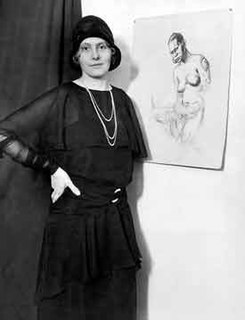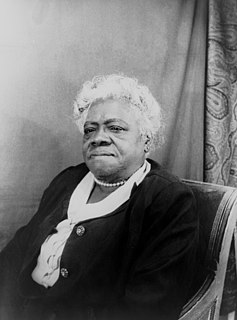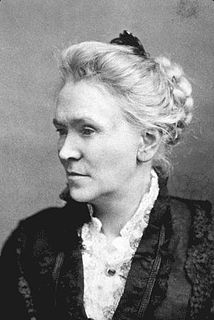A Quote by Geena Davis
What I didn't realize until much later, in hindsight, was I had subconsciously been choosing projects where the woman was in charge of her own destiny.
Related Quotes
The point I wish plainly to bring before you on this occasion is the individuality of each human soul--our Protestant idea, the right of individual conscience and judgment--our republican idea, individual citizenship. In discussing the rights of woman, we are to consider, first, what belongs to her as an individual, in a world of her own, the arbiter of her own destiny, an imaginary Robinson Crusoe with her woman Friday on a solitary island. Her rights under such circumstances are to use all her faculties for her own safety and happiness.
All of a sudden, I was in charge of my own decisions in the studio, and I didn't have someone to guide me on what I was doing, right or wrong... I wasn't a producer, and I didn't realize until then how important producers were and how much they assisted me in my work. I tried to do what I could, but I had no idea what would be good for the market.
God would love to piece together the shattered fragments of your life. But He is waiting ... graciously waiting until the time is right. Until you are tired of the life you are living ... until you see it for what it really is. Until you are weary of coping ... of taking charge of your own life ... until you realize the mess you are making of it. Until you recognize your need for Him ... He's waiting.
He had handed his daughter to Caroline Gill and that act had led him here, years later, to this girl in motion of her own, this girl who had decided yes, a brief moment of release in the back of a car, in the room of a silent house, this girl who had stood up later, adjusting her clothes, with now knowledge of how that moment was already shaping her life.
The most stupendous system of organized robbery known has been that of the church towards woman, a robbery that has not only taken her self-respect but all rights of person; the fruits of her own industry; her opportunities of education; the exercise of her judgment, her own conscience, her own will.
The extraordinary woman depends on the ordinary woman. It is only when we know what were the conditions of the average woman's life - the number of children, whether she had money of her own, if she had a room to herself, whether she had help bringing up her family, if she had servants, whether part of the housework was her task - it is only when we can measure the way of life and experience made possible to the ordinary woman that we can account for the success or failure of the extraordinary woman as a writer.
From an early age she had developed the art of being alone and generally preferred her own company to anyone else’s. She read books at enormous speed and judged them entirely on her ability to remove her from her material surroundings. In almost all the unhappiest days of her life she had been able to escape from her own inner world by living temporarily in someone else’s, and on the two or three occasions that she had been too upset to concentrate she had been desolate.




































